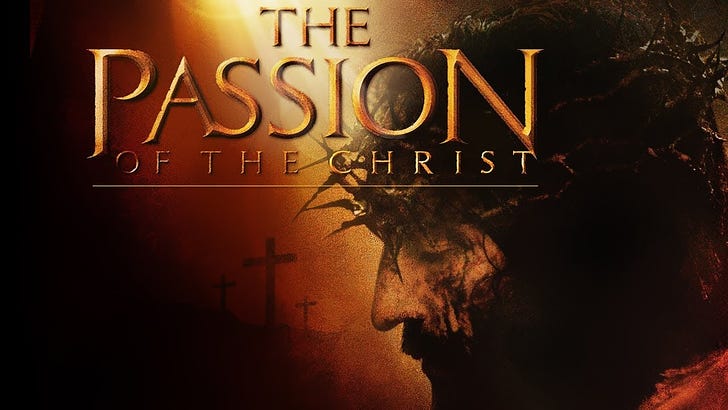A Few Thoughts on 'The Passion of the Christ'
We need some time before tackling this painful film again.
My wife and I usually wait a few years before watching The Passion of the Christ again. It’s both the terror of the crucifixion and the fearsomeness of the Resurrection that makes it difficult to happily place it in our queue of favorite holiday movies, like It’s A Wonderful Life at Christmas.
This year I’m watching it alone. Subtitles are necessary since the movie is in Aramaic and it affords me the chance to keep the volume low so as not to disturb my hardworking wife’s sleep.
I’m moved and appalled and struck by the evil in the human heart: the Son of God, a God of love, horribly betrayed by Judas and then set upon by the Romans and Pharisees. The torment never stops in the Passion and the viewer’s only release is the occasional flashback of Jesus and his mother in the beauty of their everyday life.
At the time of the movie’s release in 2004, the “wise-ones” in the media labeled it a horror movie, antisemitic, and full of religious porn. Well, I can report that none of the critiques has had any staying power.
Writer A.O. Scott of the New York Times wrote some nineteen years ago that special-effect-enhanced demons were a cheap shot. However, the young children chasing and tormenting Judas reminded me of my own childhood cruelty that I once participated in. The nightmarish change in visage of a tiny savage is subtle at first, and then grows into some new facial nightmare. Maybe Scott thinks that Dante and Hieronymus Bosch were only channeling the future Wes Craven?
Mr. Scott found plenty of porn/slasher moments, but refrains from painting Gibson’s film as antisemitic. I agree with him on this point. In Christ’s final hours, when he’s brought before the Pharisees and surrounded by a growing mob, I never could imagine then, or now, blaming an entire group of people for Christ’s death. I’ve never blamed the Romans of antiquity either for those individuals who took part in the scourging and crucifixion of Christ. I see the face of hate in the film’s characters, a potential in all humans, including myself.
After seeing the Mel Gibson film, a family member remarked that there was nothing remarkable about Christ’s suffering since people suffer horribly all the time. But that family member doesn’t consider Christ the Son of God, who willingly sacrificed his life for the redemption of all. Jesus Christ has agency to nth degree.
A.O. Scott has nothing to say about the resurrection of Christ, only disappointment with the movie’s close -- no “righteous vengeance” against Christ’s tormentors. He’s forgotten, or maybe never knew, that the Son of Man’s resurrection from the dead is the greatest third act in all history, the greatest comeuppance, the end of death and suffering, and keys to the undiscovered country.




